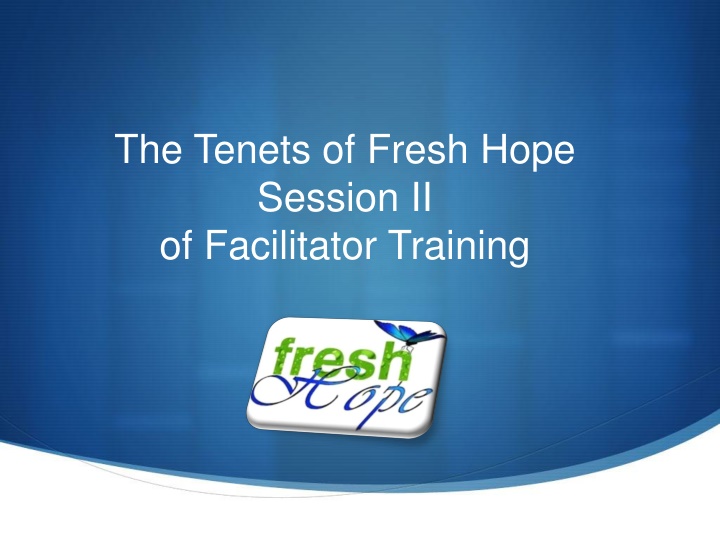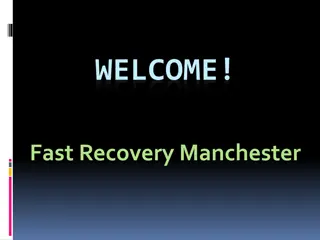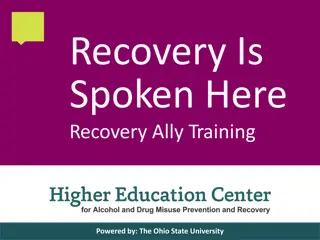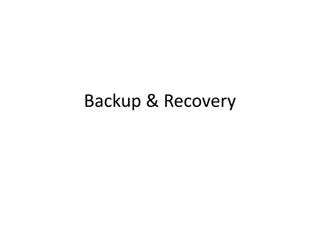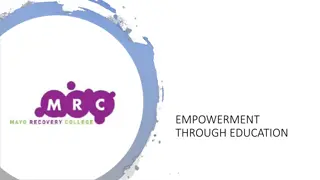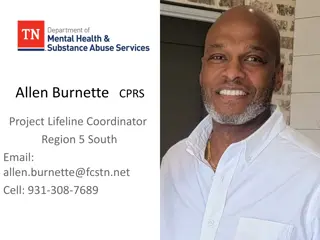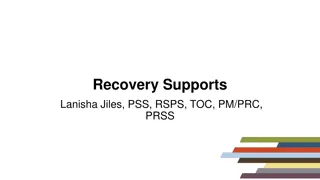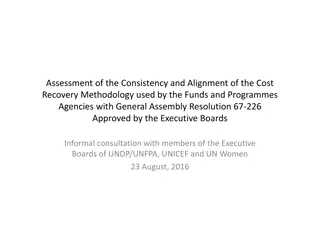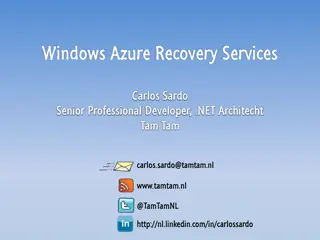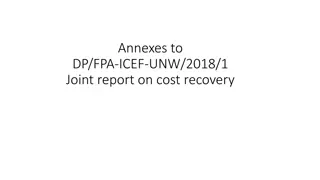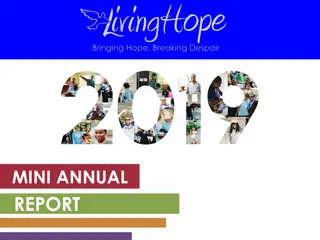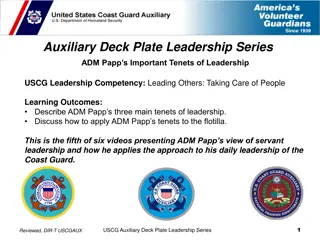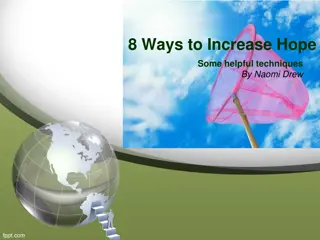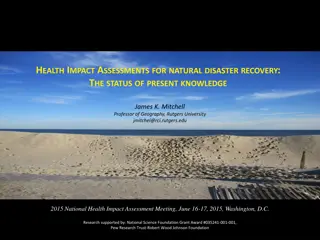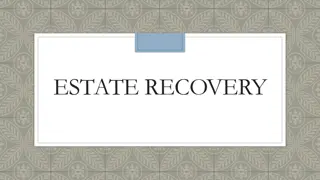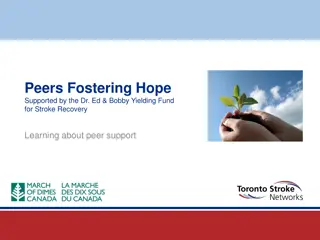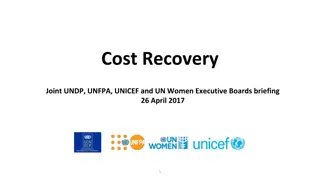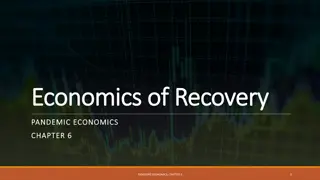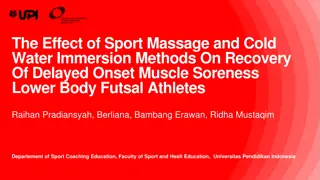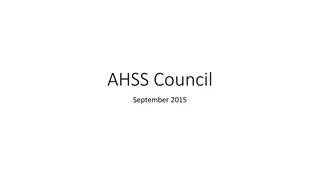The Tenets of Fresh Hope Session II: Recovery Principles and Application
The Tenets of Fresh Hope Session II focus on the six recovery principles of a wellness approach to mental health recovery. These principles are read at the beginning of each meeting and provide guidance for individuals with mental health diagnoses and their loved ones. The sessions emphasize the importance of seeking help, understanding the impact on relationships, and finding strength in faith and support from others. Each tenet addresses different aspects of managing mental health challenges and fostering healthy relationships, drawing from Scripture for inspiration and guidance.
Download Presentation

Please find below an Image/Link to download the presentation.
The content on the website is provided AS IS for your information and personal use only. It may not be sold, licensed, or shared on other websites without obtaining consent from the author.If you encounter any issues during the download, it is possible that the publisher has removed the file from their server.
You are allowed to download the files provided on this website for personal or commercial use, subject to the condition that they are used lawfully. All files are the property of their respective owners.
The content on the website is provided AS IS for your information and personal use only. It may not be sold, licensed, or shared on other websites without obtaining consent from the author.
E N D
Presentation Transcript
The Tenets of Fresh Hope Session II of Facilitator Training
The six tenets are the recovery principles of a wellness approach to recovery and are read at the beginning of each meeting.
How to use the tenets (Pages 8a-9a of Facilitator Training Manual) The first part/paragraph of each tenet is for the individual who has a mental health diagnosis. It may be read in unison by everyone in the group who has a mental health diagnosis or by one person on behalf of all those with a diagnosis. The second paragraph of each tenet is for those who are the loved ones. Because mental health issues affect our families and friendships, we have found that the loved ones also need to apply principles of recovery to their own lives. The second paragraph may be read in unison by all of the loved ones or by a loved one on behalf of all of the other loved ones in the group. The third paragraph of each tenet is what we together (those with a diagnosis and loved ones) must do to be successful in living a rich, faith-filled life. Usually this paragraph is read by everyone in unison even if the first two paragraphs have been read by individuals. The fourth paragraph of each tenet is the Scripture passage which serves as the basis for that tenet. It may be read by the group or by an individual.
TENET I My life is affected by a mental health issue and can become unmanageable and hopeless, especially if ignored or untreated. Therefore, I choose the help and support of others to overcome the struggles and find more joy in life. My loved one s mental health challenge has also left me feeling helpless and hopeless. Therefore, I choose the help of others in learning about the disorder and choosing healthy boundaries for myself. Together, we have understanding. We remind each other of the Lord s love, and that He alone can do all things. He is the source of our hope, and in Him we can overcome all things. I can do everything through Him who gives me strength. Philippians 4:13 (NIV)
Tenet 1: To begin to manage your mental health challenge, you must come to terms with your diagnosis and choose to recognize the need. The longer you fight the diagnosis, the sicker you become. The sicker you become the harder it is to get better. Taking responsibility for one s health is good for everyone. Choose to see this from an I can live a full and rich life in-spite of this. There are worse things in life! It takes some work, but it is possible. I will not die from this, I will die with this.
TENET II My mental health challenge has also affected my relationships and the lives of those around me. Therefore, I choose to overcome for both my own good, and the good of those who love me. I haven t always responded to my loved one s mental health issue in ways that were good for the relationship. Therefore, I choose to learn better ways to communicate with, support, and encourage my loved one. Together, we commit to speaking the truth in love, healing broken relationships and viewing each other as the Lord views us. So let s pursue those things which bring peace and which are good for each other. Romans 14:19 (God s Word Translation, 1995)
Tenet 2: Every mental health challenge of an individual affects the entire family. Take responsibility for the hurt/problems that it may have caused, and make it right with those who have been hurt. The best way to do this, other than talking with them, is to CHOOSE to get back and live -- to be well. Understand the difference between your mind and your brain. Understanding the difference between you and the monster (the issues caused for you when your brain is not working correctly) will help you take responsibility.
TENET III My disorder can become an excuse. Therefore, I choose to believe I can live a full and rich life in spite of my disorder. I choose the support of people who will urge me to push through . At times I don t understand my loved one and can allow them to either wallow in their excuses, or push them too hard. Therefore I choose to learn healthy, appropriate ways to contribute to my loved one s recovery. Together we do better than trying on our own. We will hold one another accountable for learning, growing, and choosing to push through in hope. Therefore, encourage one another and build each other up. 1 Thessalonians 5:11 (NIV)
Tenet 3: Continually using your mental health issue as an excuse for not moving forward will only keep you from getting better. You will stay sick longer. Choosing to hang out with people who will encourage you to grow and stretch -- to push through -- is to your advantage. You become like the five people you hang out with the most. Mental illness is too often mostly caught.
TENET IV My disorder can lead me to feel hopeless. Therefore, I choose to believe, regardless of my feelings, that there is help and hope for my physical, emotional, psychological and spiritual well-being. At times I also feel hopeless, letting my loved one s actions and recovery define my happiness. Therefore, I choose to live with healthy emotional boundaries, and I choose my own joy despite the ups and downs of my loved one. Together we remind each other that our hope and joy come from the Lord. He alone is able to fulfill our needs in every aspect of our lives. For I know the plans I have for you, declares the LORD, plans to prosper you and not to harm you, plans to give you hope and a future. Jeremiah 29:11 (NIV)
Tenet 4: We are not helpless. Don t believe the lies. Recognize learned helplessness. Learn to override your feelings with mind and faith. Detoxing the brain from stinkin thinkin . Self pity will not help you get better. Depression and mental health issues can cause you and me to become extremely self-focused.
TENET V While medicine is a key component in my recovery, it is not the only answer. Therefore, I choose to explore new ways of thinking and acting in my relationships and daily living. I too have been part of the cycle of dysfunctional living, either thinking I had all the answers or thinking the problem didn t belong to me. Therefore, I choose to submit myself to learning new behaviors and taking responsibility for my own healthy, balanced living. Together we choose freedom over suffering, and joy in living through self- knowledge in action. We demolish arguments and every pretension that sets itself up against the knowledge of God and we take captive every thought to make it obedient to Christ. II Corinthians 10:5
Tenet 5: Medicine is not a magic bullet. We have to change how we think, how we act, and what we do. We need to work with our medicine. We need to detox our thinking. DISCIPLINING ourselves is key. Understand the difference between emotional issues and issues caused by brain chemistry. This is where the hard work begins.
TENET VI At times I have allowed myself to become a victim, defined by my disorder. Therefore I choose to overcome and live in hope and joy, in spite of my disorder. At times, I have viewed myself as a victim of my loved one s behavior and disorder, living in resentment, anger, unforgiveness, or self pity. Therefore, I choose to separate the disorder from the person I love, forgive and let go of the past, and live as a contributor to successful recovery. Together, we share in each other s victories and celebrate the whole person. For God has not given us a spirit of fear, but of power and love and a sound mind. II Timothy 1:7
Tenet 6: I am making a choice to live a full and rich life in spite of having my disorder. I am choosing to see myself as a whole person. I will not think of myself as ___________ -rather, I have __________ or have been diagnosed with ____________ . I expect to live with joy and hope even if there are some speed bumps along the way. I will not accept to learning to cope as opposed to living!
Our purpose is to encourage one another to choose God s fresh hope for our daily life and future. Who we see here remains confidential. What is said here stays here. We don t judge; nor do we lecture. We listen, we share and we grow.
Understanding the Biblical concept of suffering is key to understanding the positive approach of Fresh Hope The power of Romans 8:28 living!
